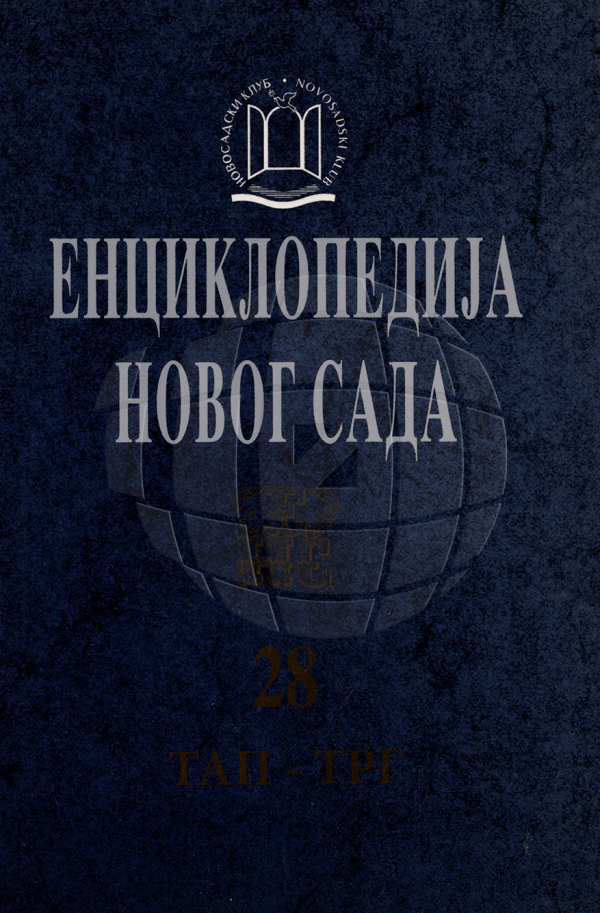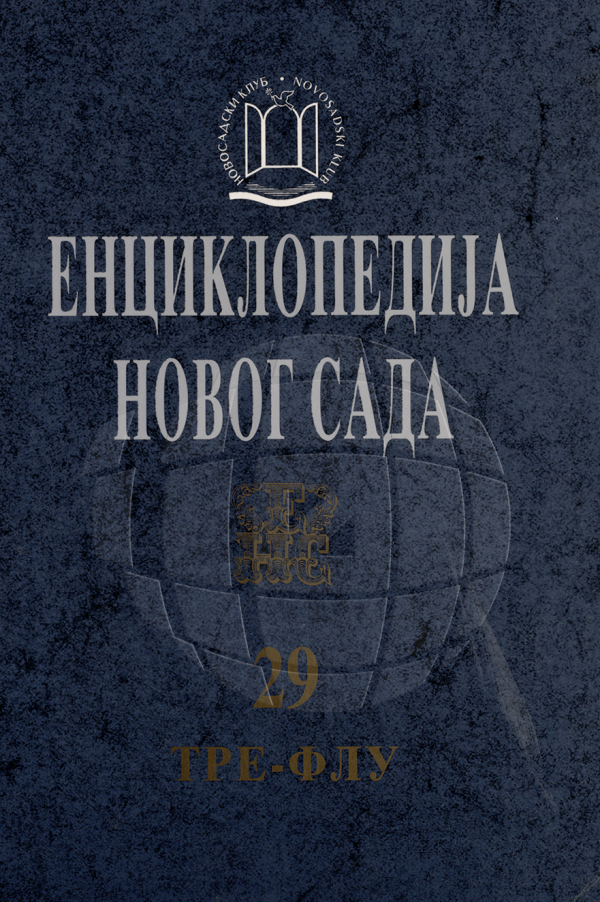
Prose



Popović was born in Werschetz (Vršac), in Habsburg Monarchy (Temesch County of Habsburg Kingdom of Hungary, modern Serbia).His father Šterija (Greek: asterion) was a Greek merchant, possibly of Aromanian origin. His maternal grandfather was known painter and poet Nikola Nešković, whom he would later write the biography of.
Popović attended grammar schools in Vršac, Karlowitz (Sremski Karlovci), Temeschwar (Timișoara) and Ofenpesth (Budapest). He studied law at Käsmark (Kežmarok). After he finished his studies (1830), he worked as a professor, and from 1835, when he passed his bar examination, he returned to his hometown where he first taught Latin, then opened his law practice. Like many other intellectuals of Vojvodina, driven by patriotic feelings, he decided to work in the Principality of Serbia. He began to write historical dramas but soon switched to comedy. In 1840 he went to Kragujevac to study at the pedagogic school of natural law. In the same year he, he moved to Belgrade, where he would spend eight years, teaching at what was then the most advanced school in Serbia, Grande École (Belgrade Higher School, future University).
He was instrumental in founding the Serbian Academy of Sciences and the National Museum. He continued to write dramas, which he also organized, staged, and directed. He was appointed head of the Ministry of Education by the constitutional government in 1842. He remained in this position until 1848, working on organizing the school system and education in Serbia. His continued disagreement with the leading politicians of the day and ill health would soon force him to withdraw from public life. At the beginning of the same year (1848) he decided to tender his resignation and return to Vršac (1848-9 part of Serbian Vojvodina, 1849-60 Serbia and Temeschwar), where he lived till his death in 1856, deeply disappointed with people and life in general. He is buried at the Orthodox cemetery in Vršac.


Rajić was born on September 21, 1726 in Sremski Karlovci. Jovan rceived his elementary education in his native town, in the school of Deacon Petar Rajkov, a more zealous than learned successor of his own imported Russian teachers, notably Emanuel Kozačinski. It was through Rajkov that young Jovan Rajić would learn Serbian historiography, which belonged to the latter group. He attended Novi Sad's Petrovaradinska roždestveno-bogorodičina škola latinosko-slovenska, the Latino-Slavonic Spiritual Academy for young theologians, founded by Russian-born Emanuel Kozačinski in 1731. In 1744 he moved to Komárom where he attended a Jesuit gymnasium for four years. Fearing to be converted, he became a student of Protestant lycée in Sopron in 1748. He graduated in 1752 and he was ostensibly headed for the church. But his tastes lead him in a different direction for the time being; not content with a knowledge of books only, he wished to know the world and people better. During a period of almost ten years he seized every opportunity for profitable travel whenever he could. He travelled on foot from Hungary to Russian Empire – a distance of 800 miles -— where he enrolled as a student of the prestigious Kyiv-Mohyla Academy. He remained in Kiev until 1756 studying theology. He immediately formed a friendship with his professors, many of whom were disciples of Feofan Prokopovich, the great reformer of the Russian Orthodox Church and one of the founders of the Russian Academy of Sciences. After graduating from the Kiev academy he travelled to Moscow and Smolensk. For the next few months he led an unsettled life, attracting attention everywhere by his talents and boldness of his teaching. On his way home he also visited Poland and various parts of Hungary. In 1757 he returned to his native Sremski Karlovci and sought a teaching position at a seminary called Pokrovo-Bogorodičina škola, which was denied. Dejected and hurt, he decided to go back to Imperial Russia. He arrived in 1757 back in Kiev where he stayed only for a short time. That same year he travelled to Poland, Wallachia, Moldavia before taking a ship across the Black Sea to Constantinople, and from there to Mount Athos, where he spent a few months at the Serbian Monastery of Hilendar, doing research in the library. It wasn't until late 1759 that he became a professor of geography and rhetoric in Pokrovo-Bogorodičina škola in Sremski Karlovci. Entering a conflict with high representatives of Serbian Orthodox Church in Sremski Karlovci, he moved to Temesvar, modern day Romania. Life at the episcopal residence was luxurious. Though Rajić resisted the evils attendant on such luxury—loose morals, drunkenness, intrigue—he did acquire a vice which was to embiter the rest of his days, avarice. But more important, he found time in Temesvar to work on his History. After a turbulent year and a half, Rajić left for Novi Sad at the invitation of the Serbian Bishop of Bačka, Mojsije Putnik. He was inaugurated rector of the institution of higher learning, Duhovna kolegija, by Metropolitan Pavle Nenadović of the Metropolitanate of Karlovci in 1767. There he stayed for more than four years as both rector and professor of theology. His lectures, in which he endeavoured to show that Orthodox theology is in complete harmony with reason, were received with eager interest by the younger generation of thinkers. His unshakable faith in Reason awakened and inspired his students and thus prepared succeeding generations to traverse paths which were closed to Orfelin and to his Serbian contemporaries. In 1772 he went to Kovilj monastery where, at the age of 46, Rajić became a monk and soon after he was elevated to the monastic rank of archimandrite, and made abbot of the same monastery. He spent the rest of his life in the monastery writing books, mostly with religious and theological themes. In a fruitful lifetime which spanned the last three quarters of the eighteenth century, Rajić brought Rationalism to its zenith among Serbs in Serbian lands.
He died in the Serbian Kovilj monastery on December 22, 1801.
Napisao je „Katihizis“, više hrišćanskih istorija, obrednih knjiga i polemičkih bogoslovskih spisa. Najznačajnije mu je delo „Istorija raznih narodov, naipače Bolgar, Horvatov i Serbov“. Neposrednije u književnost spadaju ovi njegovi radovi: „Boj zmaja s orlovi“, „Tragedija cara Uroša“, prerada s nemačkog jezika jedne srednjovekovne zbirke pripovedaka i dve zbirke prigodnih i pobožnih pesama („Vo spominaniju smerti“ i „Na gospodskija prazdniki“).



(Exact date of birth and death is unknown)
Jovan Muškatirović was born in 1743 into a Serb family in the town of Senta, which at the time was part of the Habsburg Military Frontier. From 1764 to 1766 he attended the Protestant Lycee at Pozun (Bratislava) before entering the law school of the University of Pest. In 1769 he graduated among the top of his class.
At the time legal education gained even greater significance following Maria Theresa's Decree on the Legal Profession in 1769. Up until that point, the representation of clients in front of the state administration bodies and the high courts was performed by poorer noblemen or priests, many of whom did not have the proper professional training. Under the Imperial decree, the task of a barrister could only be carried out by those with a law degree and a successfully completed Bar exam, and only after they had been sworn in by a proper government agency. This regulation was in effect throughout the Empire. In southern Hungary, this decree led to the creation of a distinct class of lawyers, within which the leading figures were Serbs. This was the result of a number of circumstances. First of all, positions in the county administration and judiciary were reserved for Hungarians, who gladly chose state service, since it offered more security and a solid income. Other law graduates, among them Serbs, were obligated to face the challenges of a private law practice. In 1773 (only four years after the issuing of the Decree), the first Serb lawyer, Jovan Muškatirović of Senta, was sworn in. He immediately saw his mission in life both in literature and in promoting education for his people. He was influenced by the Age of Enlightenment and personally by Dositej Obradović.
The ethnic composition of the two cities, Buda and Pest, was complex in the late eighteenth century. Ethnic identity was a matter of personal choice, and during the early decades of assimilation, many inhabitants, especially writers and lawyers were bilingual and trilingual with multiple ethnic loyalties. Mihály Vitkovics/Mihailo Vitković wrote in Hungarian and Serbian, Jovan Muškatirović, then a member of the city council, wrote in Latin and Old Church Slavonic as well, and many others spoke and wrote in German, Hungarian, Romanian, Serbian and Latin, besides their Old Church Slavonic.
The most important work of Muškatirović was his collection of Serbian proverbs, "Pričite iliti po prostomu poslovice tjemze sentencije iliti rječenija", published in Vienna in 1787 before Vuk Karadžić began compiling proverbs and national epic songs.
As a promoter of education he had a prominent place in the struggle against traditionalism and superstition. In 1786 he published a treatise "Kratkoe razmislenije o prazdnici" (A Short Deliberation on Holidays), advocating a reduction in the number of religious holidays, an increase in the number of working days and, hence, an improvement of economic power of the nation. He also wrote health hazards of excessive fasting (at the time, fasting was prescribed for 200 days a year) and, about the need to boost agricultural production.
In Serbian eighteenth-century literature Zaharije Orfelin's authorship of "The Life of Peter the Great" was recorded for the first time in 1786, by Jovan Muškatirović. The illustrations of Peter's biography had been announced by Orfelin in 1772, but he began to produce then in 1774, and the whole enterprise was not completed until 1779, when the authorship of the book had been indubitably established. All this, however, was forgotten until Jovan Muškatirović brought it to the attention of his literary circle seven years later.
He died at Buda, 1809.

Jovan Dučić was born in Trebinje at the time part of Bosnia Vilayet within the Ottoman Empire on 17 February 1871. In Trebinje he attended primary school. He moved on to a high school in Mostar and trained to become a teacher in Sombor. He worked as a teacher in several towns before returning to Mostar, where he founded (with writer Svetozar Ćorović and poet Aleksa Šantić) a literary magazine called Zora (Dawn). Dučić's openly expressed Serbian patriotism caused difficulties with the authorities—at that time Bosnia-Herzegovina was de facto incorporated into the Austro-Hungarian Empire—and he moved abroad to pursue higher studies, mostly in Geneva and Paris. He was awarded a law degree by the University of Geneva and, following his return from abroad, entered Serbian diplomatic service in 1907. Although he had previously expressed opposition to the idea of creating Yugoslavia, he became the new country's first ambassador to Romania (in 1937). He had a distinguished diplomatic career in this capacity, serving in Istanbul, Sofia, Rome, Athens, Cairo, Madrid and Lisbon. Dučić spoke several foreign languages and he is remembered as a distinguished diplomat. His Acta Diplomatica (Diplomatic Letters) was published posthumously in the United States (in 1952) and in the former-Yugoslavia (in 1991).
It was, however, as a poet that Dučić gained his greatest distinctions. He published his first book of poetry in Mostar in 1901 and his second in Belgrade, 1912. He wrote prose as well: several essays and studies about writers, Blago cara Radovana (Tsar Radovan's treasure) and poetry letters from Switzerland, Greece, Spain and other countries.
Like Šantić, Dučić's work was initially heavily influenced by that of Vojislav Ilić, the leading Serbian poet of the late 19th century. His travels abroad helped him to develop his own individual style, in which the Symbolist movement was perhaps the greatest single influence. In his poetry he explored quite new territory that was previously unknown in Serbian poetry. He restricted himself to only two verse styles, the symmetrical dodecasyllable (the Alexandrine) and hendecasyllable—both French in origin—in order to focus on the symbolic meaning of his work. He expressed a double fear, of vulgarity of thought, and vulgarity of expression. He saw the poet as an "office worker and educated craftsman in the hard work of rhyme and rhythm".
Dučić's grave site in Libertyville. Dučić was buried here from 1943 until 2000 when his remains were moved to Trebinje.
Dučić went into exile in the United States in 1941 following the German invasion and occupation of Yugoslavia, where he joined his relative Mihajlo (Michael) in Gary, Indiana. From then until his death two years later, he led a Chicago-based organization, the Serbian National Defense Council (founded by Mihailo Pupin in 1914) which represented the Serbian diaspora in the US. During these two years, he wrote many poems, historical books and newspaper articles espousing Serbian nationalist causes and protesting the mass murder of Serbs by the pro-Nazi Ustaše regime of Croatia.
He died on 7 April 1943 and was buried in the Serbian Orthodox monastery cemetery of Saint Sava in Libertyville, Illinois. He expressed a wish in his will to be buried in his home town of Trebinje, a goal which was finally realized when he was reburied there on 22 October 2000 in the newly built Gračanica church.

Jezdić was born in Polača, at the time in Austria-Hungary, today’s Croatia.
At the end of the 1950s Jezdić illegally fled to the USSR together with his wife and daughter, as a part of the so-called "informbiro" emigration. As a sympathizer of Joseph Stalin he was forced to escape to avoid persecution. When he arrived in Moscow, he was arrested under the allegation that he was a spy of the Communistic Party of Yugoslavia. He spent three months in the notorious prison Lubyanka in Moscow. He was released thanks to the initiative of some influential members of the NKVD secret police. Ana Jezdić, his wife, spent more than five months in the prison. Her health was greatly damaged in the prison, so she died by the end of 1951 from pneumonia. Jezdić remained a true communist, but he never forgave the USSR authorities for the death of his wife.He died in Buenos Aires, Argentina.
During his long carrier, Jezdić wrote several dozens of philosophical discussions, of which only a few were published. Criticism of the authorities was one of his dominant motives. One of his crucial works is a discussion entitled, "Instead of the Law", which has an idealistic view on anarchism. It was published only in French. One of Jezdić's early role-models was the Russian revolutionist and philosopher Mikhail Bakunin, because of his tempestuous life. The most colorful character from Jezdić’s novel "Contempt" is a mysterious old man Aleksei Krinkop, who shouts: "Where authorities exist, freedom is gone", which is a motto of several anarchistic groups. This character was based upon the Russian philosopher, historian, and writer Peter Kropotkin. Jezdić also wrote the analysis of the Russo-Japanese War, and the Russian revolution of 1905.
